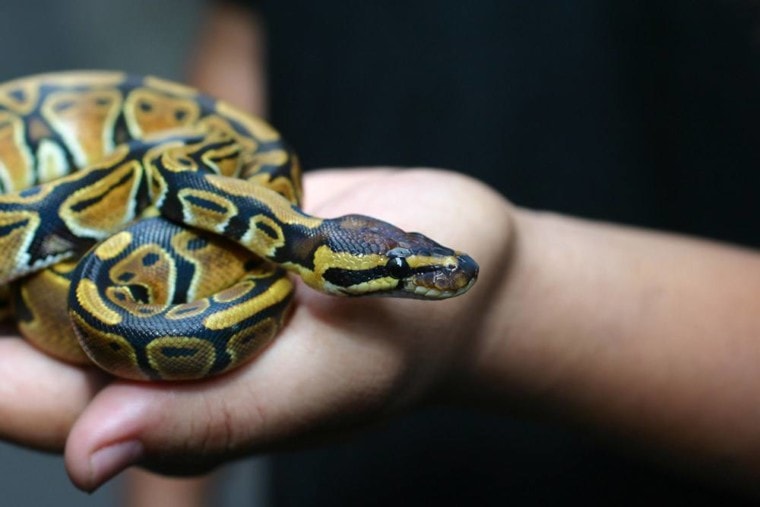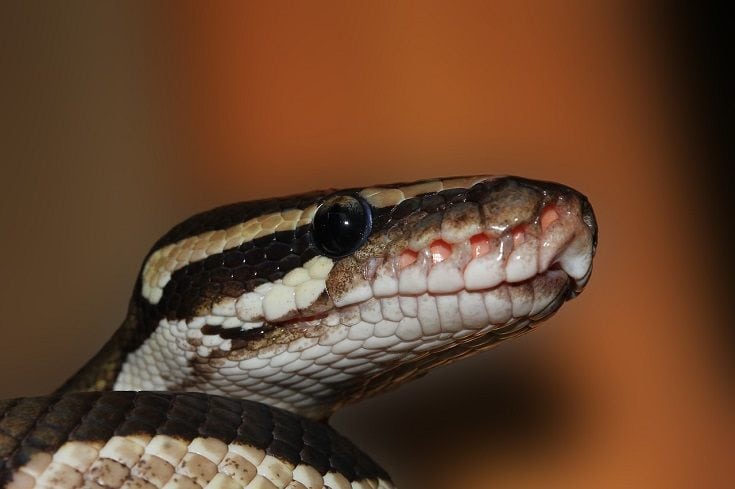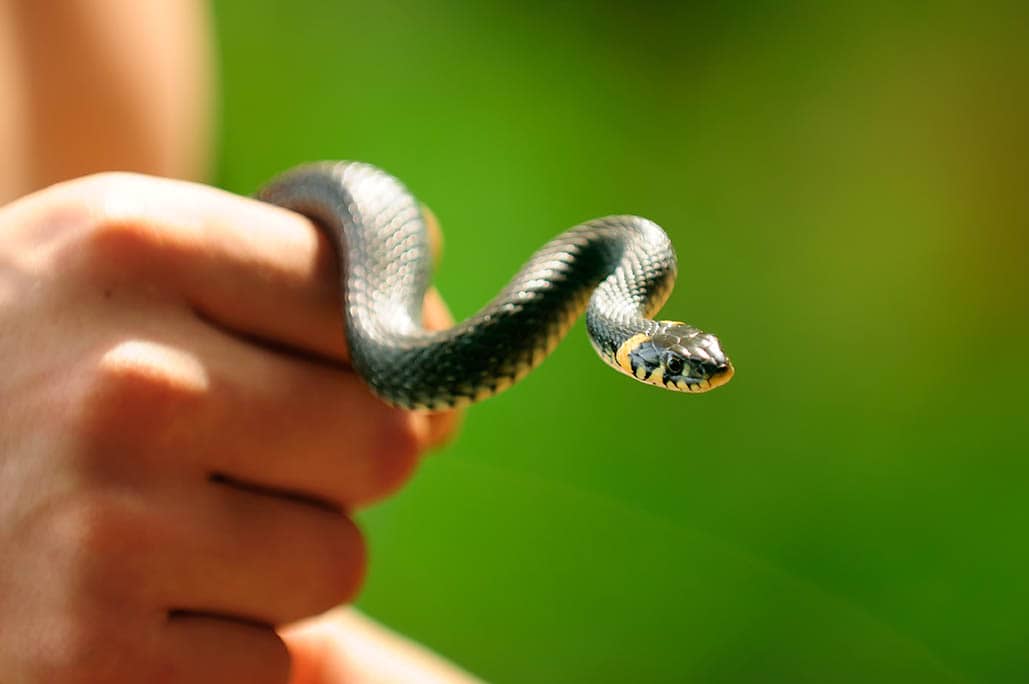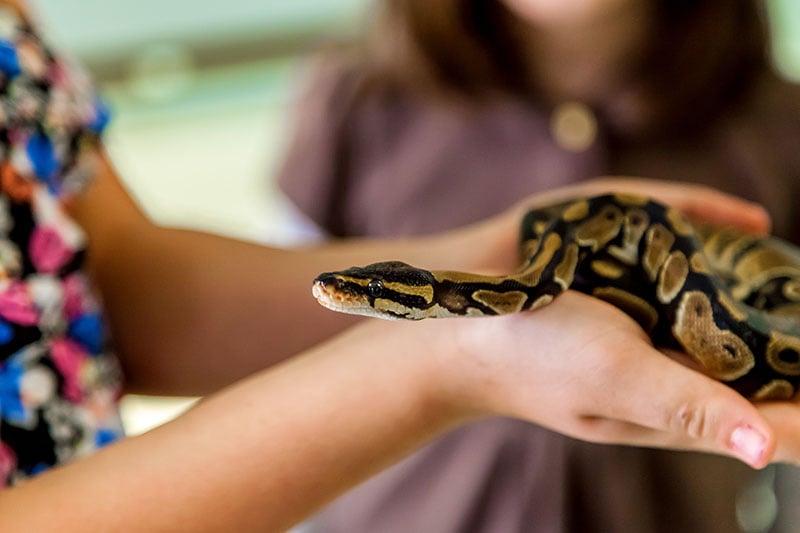
The ball python is a popular pet snake, proving especially popular with first-time and novice owners. It doesn’t grow too large and it is considered a docile snake that is easy to handle. It is often described as being a friendly snake and becomes easier to handle the more often you do so, suggesting it may have the capability to recognize owners, but is this true? Does a ball python recognize its owner, and other people, or is it just accepting of human handling, in general?
Simply put, they recognize the scent of their owner, but not visually.
 Ball Pythons and Scent
Ball Pythons and Scent
Ball pythons, like most snakes, recognize scents rather than how things look. They can smell when something is recognizable to them, although they also have a strong sense of hearing which means they may be able to recognize the sound of your voice.
The ball pythons actually smells through the vomeronasal organ, located just above the mouth. By flicking their tongue, they can detect smell and even taste. They will learn to recognize their tank and their surroundings. In the wild, this would enable them to find and remain in a safe spot. It would also help them locate hunting grounds and other areas.

Do Ball Pythons Get Attached to Their Owners?
Their strong sense of smell and hearing means that your ball python does not necessarily bond with you but they do get used to you. They will feel safe and comfortable around your smell and when hearing your voice.
Because they view you as being a safe space, they will relax when in your presence and while being handled, which can give the appearance that they get attached to you. They know you won’t hurt it, in the same sense that they know their favorite log in their tank won’t hurt them.
Do Snakes Recognize Their Names?
Snakes do have good hearing, especially in the 200 Hz to 300 Hz range. Human voices register at 250Hz, which means that our voices are right in the middle of a comfortable hearing range for ball pythons. This means that they can hear you when you talk to them or just talk in general.
Although they won’t recognize their name, as such, they may be able to differentiate between your voice and the voices of others. They may also be able to recognize different sounds and associate these sounds with different outcomes. If you always come to say hello to your snake after calling their name, they might expect you to perform the same action in the future.
Do Snakes Like Being Petted?
Snakes do not really enjoy being petted, although some will naturally tolerate it and others will learn to tolerate it with regular and careful handling. Certain species, including ball pythons and the likes of corn snakes, do tolerate the practice more than others. Generally speaking, however, you should try to limit the amount of time you spend handling your pet snake.

Do Snakes Get Lonely?
Snakes are a solitary species, which means that, in the wild, they would spend most of their time alone. The only time that this isn’t true is when two snakes mate. Obviously, they would need to be closer at this time. They do not live as part of a family group, and they are quite happy to be left alone in their tank.
Tips for Handling a Snake
Whether you’re an experienced or inexperienced snake owner, there are ways that you can improve the handling experience for you and your snake. This, in turn, will help ensure that they endure less stress and that you enjoy a more positive experience.
 Can Snakes Tell Who Their Owner Is?
Can Snakes Tell Who Their Owner Is?
Snakes are not the same as people. They do not have the same cognitive reasoning or memory as people, but they do recognize smells and sounds, and they may even respond to smelling or hearing anything familiar.
As such, they will start to recognize the scent of their owner, making them more likely to relax and feel comfortable in their owner’s hands. The more a ball python, which is one of the most popular snakes for first-time owners because of how well it tolerates being handled, is picked up, the better it will tolerate the experience.
Related Read:
- 25 Fascinating Pet Therapy Statistics
- Lemon Blast Ball Python Morph: Facts, Appearance, Pictures, & Care Guide
Featured Image Credit by Krisda Ponchaipulltawee, Shutterstock
 Ball Pythons and Scent
Ball Pythons and Scent





